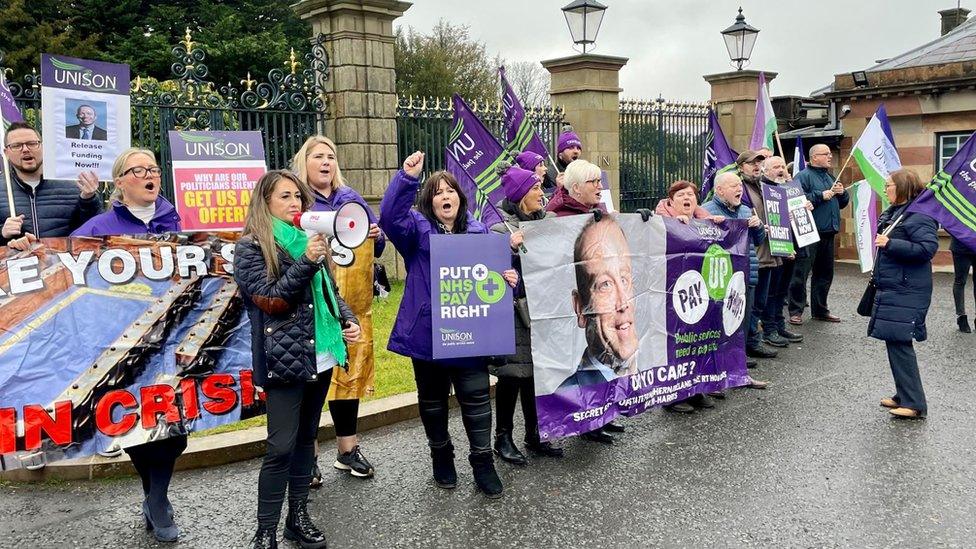NI politics: Strike action won't push DUP into Stormont deal
- Published
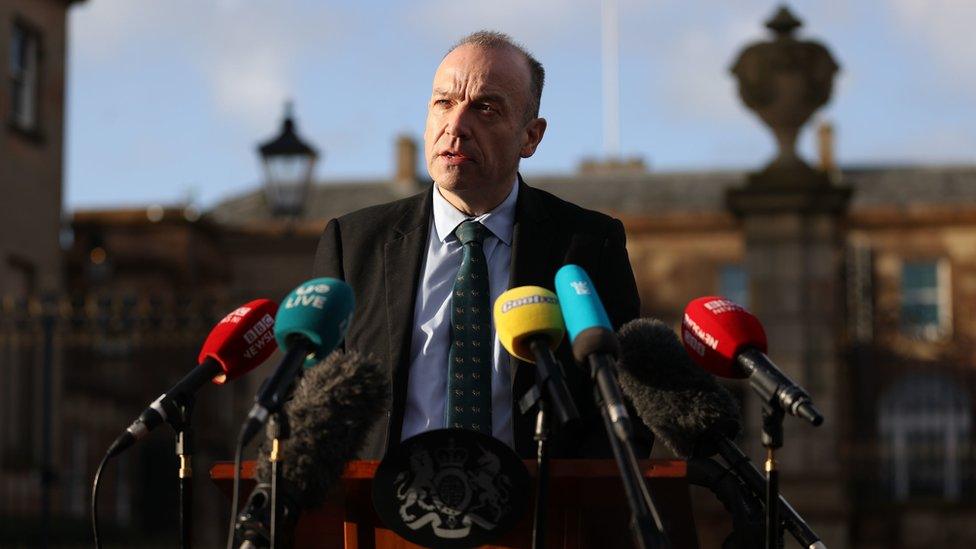
The secretary of state will meet the parties separately on Monday
As Northern Ireland edges closer to a day of mass disruption the government and the DUP are locked in a political arm wrestle.
London is desperate to push the party back into government but the DUP leader is not in a position to pull his party with him.
Both sides are now in a standoff.
The standoff hardened this week when it became clear the DUP will not be returning to Stormont ahead of Thursdays "artificial" deadline.
That is the day when Secretary of State Chris Heaton-Harris will fall under a legal obligation to call a fresh assembly election if no Executive is formed by midnight.
He is likely now to amend the legislation to push the deadline back by at least a year.
Mass strikes
Thursday is also the day when many public services in Northern Ireland will grind to a halt when workers from 15 unions take to the picket line.
Meanwhile, the day before, Sinn Féin will seek a recall of the Northern Ireland Assembly - the seventh such recall petition to have taken place since May 2022. On each occasion, the DUP has vetoed the election of a Speaker.
The government had hoped that unprecedented level of public pressure would force the DUP to end its Stormont boycott.
But it is going to be a "good strike wasted", as some have described it, as nothing is likely to change by the time workers put away their placards on Thursday night.
If anything, the pressure will remain on the secretary of state, who has already accepted the need for pay parity and holds the cheque to make it happen.
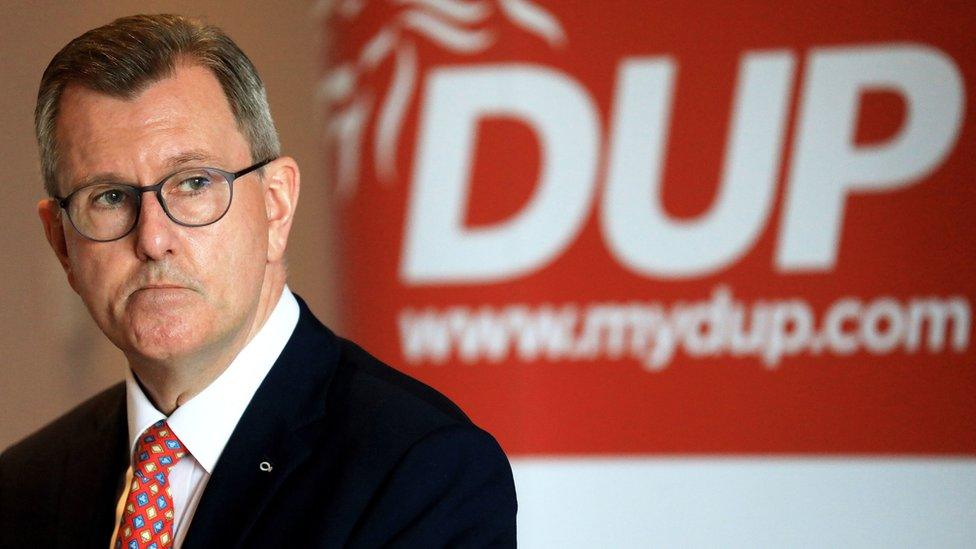
The government had hoped public pressure would force DUP leader Sir Jeffrey Donaldson to end his party's Stormont boycott
The unions taking part on Thursday's day of action are directing their fire at Chris Heaton-Harris and not the DUP.
As one union leader declared this week - much to the frustration of the NIO - the local political parties are "irrelevant".
Plan A is clearly not working and next week Chris Heaton-Harris may start working on Plan B.
That process will begin on Monday when he meets the parties separately at Hillsborough castle.
Expect the secretary of state to harden his language as London has now clearly run out of patience with Sir Jeffrey Donaldson.
Mr Heaton-Harris will once again dangle the £3.3bn cash prize if the DUP return to Stormont.
But he may also talk tough around further cuts to MLA salaries and may even threaten to go public with some of the deal offered to the DUP.
All of which is unlikely to move the party any closer to Stormont and runs the risk of energising those within the DUP who are strongly opposed to a return to power sharing while any trace of an Irish Sea border remains in place.
On Wednesday Chris Heaton-Harris will lead Northern Ireland Questions in the commons and that could be the moment when he spells out the government's next move.
He may also commit to setting the budget for next year and striking the regional rate in the absence of an executive.
Both of which present opportunities for him to raise the ante even further by talking up the prospect of more financial hardship for public services in Northern Ireland - at a time when there is a £3.3bn cheque waiting to be cashed.
Public sector pay
But how much longer can the secretary of state hold off releasing the £580m to bring public sector pay into line with the rest of the UK?
The Treasury, we are told, is adamant the money will only be handed over as part of the £3.3bn package once Stormont returns.
The government is also reluctant to loose the leverage over the DUP which comes with the money.
Handing it over without a trade off would remove any hope of the public sector pay pressure being directed at the DUP.
Politically it makes sense but morally it is hard to defend.
The DUP insists the talks with the government are still "live" and has said the onus is on London to break the deadlock.
Publishing the legislation which the government believes will secure Northern Ireland's place in the UK internal market might be a first step in that direction.
There is a lot for Chris Heaton-Harris to consider over the weekend while the rest of the cabinet focus on the fallout from the air strikes in Yemen.
It will be a real test of his power-lifting skills if he plans to strong arm the DUP back into government.
Muscle alone won't be enough.
- Published12 January 2024
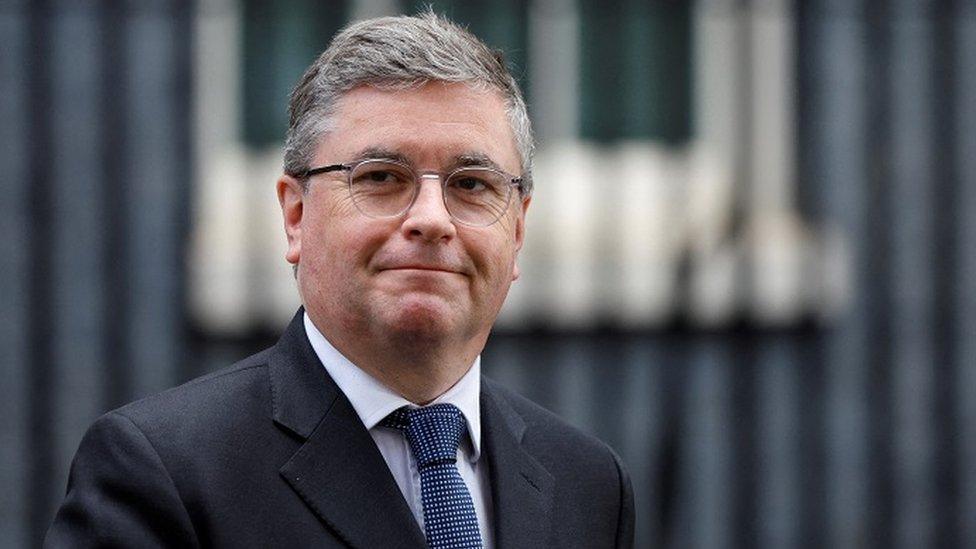
- Published19 December 2023
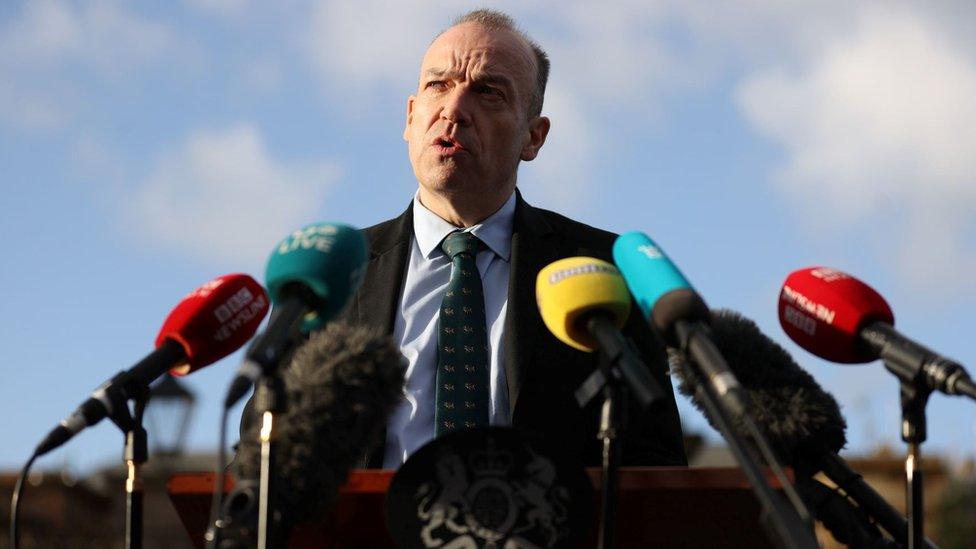
- Published18 December 2023
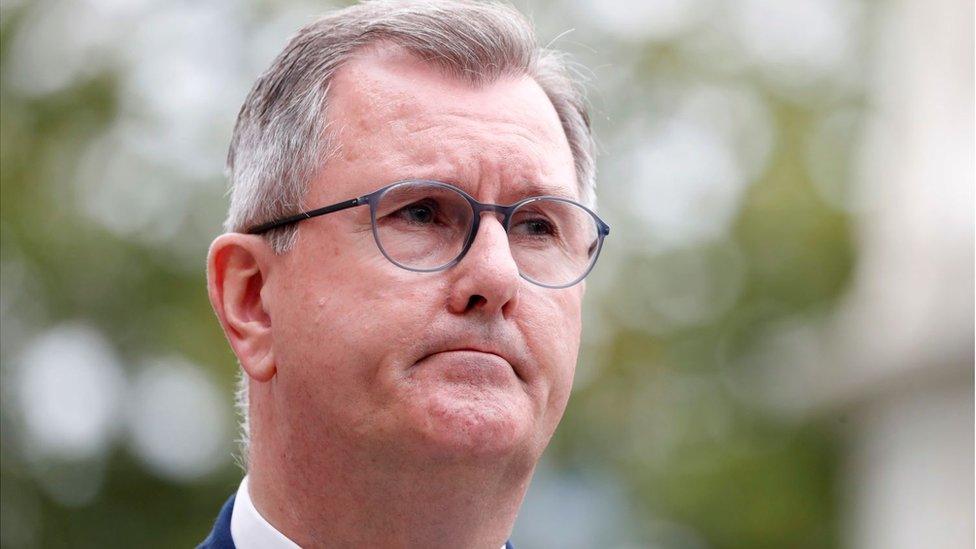
- Published11 December 2023
